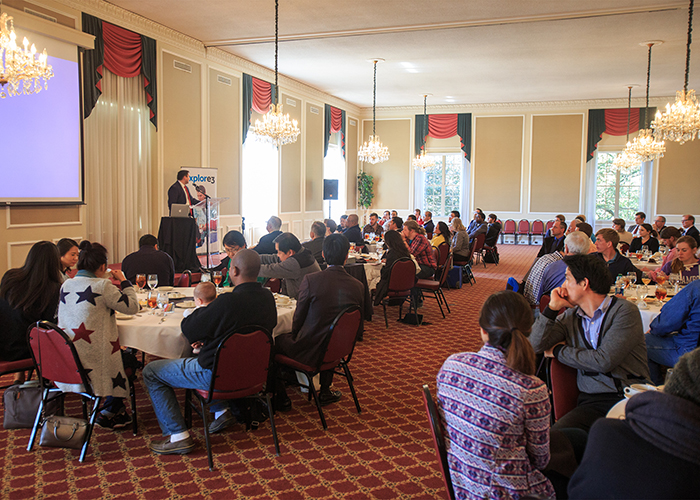Conference examines opportunities brought by persecution

In the opening session of Southwestern Seminary’s Persecuted Church Conference, Tom Doyle remarked that in the last 10 years, more Muslims have come to faith in Christ than in the last 14 centuries of Islam. “In fact,” he continued, “some are calling it the fifth Great Awakening.”
The conference, which was organized by Southwestern’s World Missions Center and the missions agency e3 Partners, took place Feb. 15-17 and featured multiple speakers with ministry ties to parts of the world where being a Christian often means facing persecution. In the midst of such trials, however, the speakers noted that there is great opportunity.
Doyle, Middle East director and vice president of e3 Partners, said, “When someone tries to wipe [Christians] out, do you know what happens? We grow. It just happens every time. … You kill us, you persecute us, and we get bigger. We get stronger.”
For example, Christianity is making great gains in Iran. Syrian refugees are also opening their hearts to the name of Jesus in their crisis, Doyle said. Testimonies of new believers are resounding throughout the Muslim world as they choose Jesus over their property, family and their own lives.
“So are [new Christians] afraid in the Middle East? They really are not,” Doyle said. “The believers are incredibly brave. … God is moving, and they are willing to die. That is why their churches are growing so fast.”
During his time on the platform, Jason Elam, Israel director for e3 Partners, emphasized the opportunity that persecution brings. He noted that, whenever there is persecution, God “ups the ante” too.
“I think that ISIS today could be the greatest evangelist for our Gospel,” Elam said. “It’s forcing Muslims into their own scriptures, to evaluate ‘Why do I believe this?’”
“We saw this in 9/11,” he continued. “People saw how Osama Bin Laden was behaving and what he was reporting and saying about the Qur’an, and they started looking at the book and the man—the Qur’an and Muhammad. They started looking at these things, and it started to expose Islam for what it is.”
With Muslims questioning their faith, Christians have the opportunity to clarify who the real God is. Citing Jeremiah 9:24, Elam said, “God wants us to know Him and understand. He wants us to know that He is safe. We can run to Him; we don’t have to run from Him.”
“It may be hard as we go forward, but it’s going to be temporary,” Elam concluded. “It may be painful, but He will comfort. It may be lonely, but He is constantly present. … So yes, there are great persecutions. But with that, there are great opportunities.”
Building on this foundation, Jared Allen, a strategy director for e3 Partners in the Middle East, discussed methods for gaining effective access to areas where persecution is likely. Noting that many “unreached” people groups remain unreached by choice—by social, economic or socio-religious reasons—Allen said that in order to both gain access and be effective, one must be creative. Some of these creative methods include Bible stories and discussions of Jesus’ parables as means for opening the door for evangelism.
CEO of e3 Partners and Ph.D. candidate at Southwestern Curtis Hail brought the discussion to a closer context—namely, that of North America. Hail addressed the increasing challenges North American Christians face when sharing the Gospel in what he explains is now a “pre-Christian” culture, comparing the social and political opposition to that of the first and second century Christians. “You realize that if early Christians accomplished what they accomplished in that pre-Christian context, then we can do the same thing with the power of the Holy Spirit,” Hail said.
“We might not be persecuted here yet,” he continued, “but we are going to be under increasing pressure. We have to be prepared to speak into culture. Don’t see this pre-Christian culture we are living in as opposition. See it as an opportunity.”



